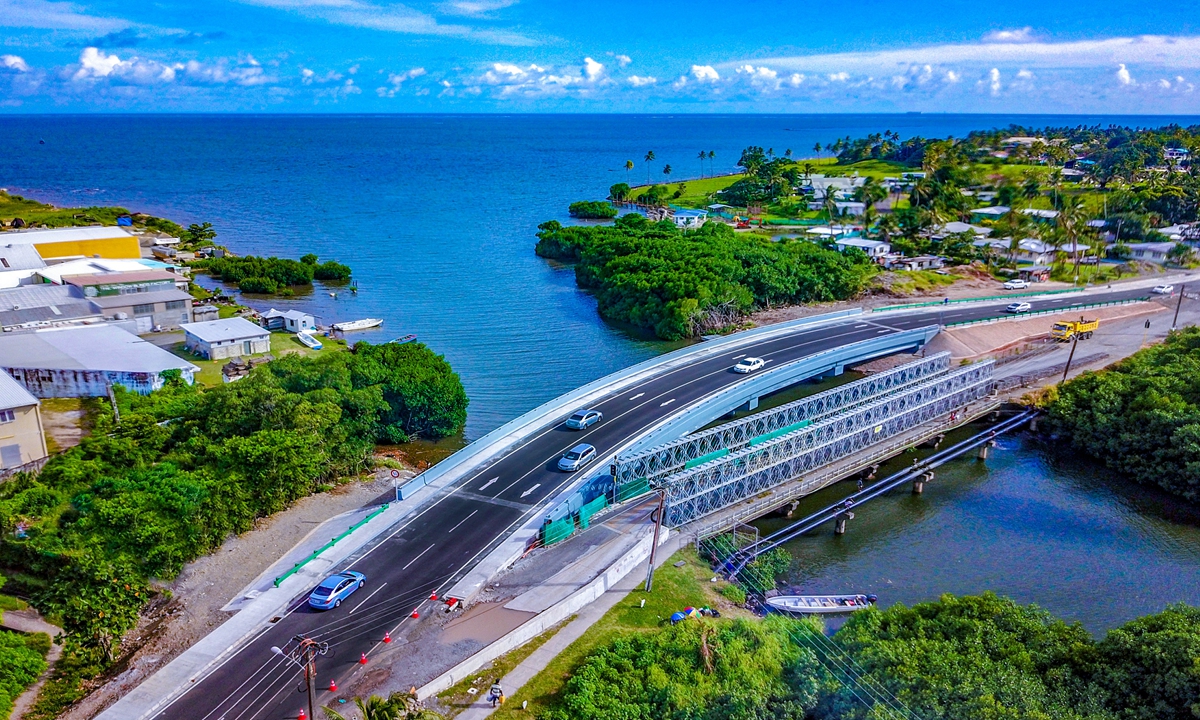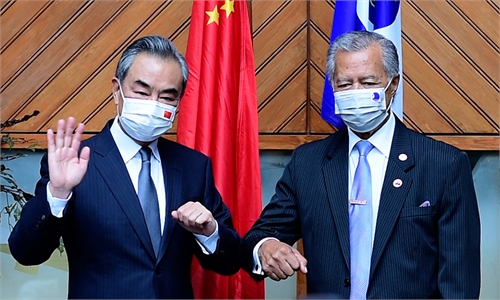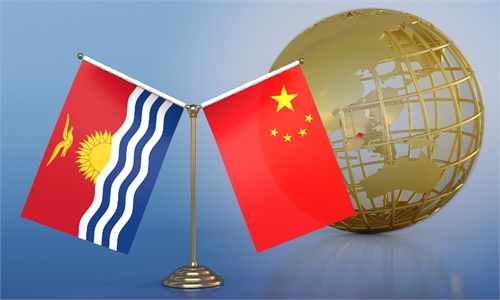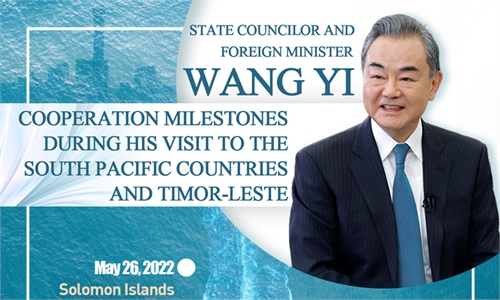Chinese businesses in Fiji see pragmatic opportunities in tackling climate change, other sectors
Geopolitics won’t deter win-win cooperation: expert

A bridge built by China Railway 14th Bureau Group Co in Fiji. Photo: Courtesy of the 14th Bureau of China Railway Construction Co
China and Fiji have a huge potential for pragmatic cooperation in a wide range of areas, including climate change, agriculture and infrastructure, despite geopolitical attempts by certain countries to undermine China-Fiji ties, Chinese businesses and experts said, after Chinese State Councilor and Foreign Minister Wang Yi visited the country over the weekend.Wang's visit to the South Pacific countries, coming amid rising geopolitical tensions, will further demonstrate China's determination to carry out win-win cooperation with other countries, Simon Chen, president of the China Agriculture & Trade Development Association of Fiji, told the Global Times.
Wang's trip came after Penny Wong, the new Australian foreign minister, made a trip to Fiji on Thursday, claiming that Australia will "strengthen the Vuvale partnership and help build a stronger Pacific family."
On Saturday, Prime Minister Frank Bainimarama of Fiji said on Twitter that the country is not anyone's backyard and its greatest concern is climate change, one day after he announced that Fiji had become a founding member of the US-initiated Indo-Pacific Economic Framework (IPEF).
Chen said that China and Fiji can enhance cooperation in tackling climate change, which is important for not only Fiji and China but also for the entire world.
"Compared with the IPEF, a political mechanism designed to 'effectively counteract China's growing influence', China-Fiji cooperation is more pragmatic and doesn't seek any selfish interests," Sun Chang, a research assistant at the Institute of Southeast Asian and Oceanian Studies at the China Institutes of Contemporary International Relations, told the Global Times on Sunday.
Sun added that Fiji's participation in the IPEF will not affect its cooperation with China, as China-Fiji cooperation is a two-way choice made by both China and Fiji based on equality, mutual respect and win-win cooperation, and it will not be shaken by external factors.
"The IPEF is lacking in substantive content and its applicability to Fiji's national conditions remains to be examined," Sun said.
Chen noted that after being disappointed by developed countries for years, the governments and people of Pacific Island countries have started to turn their attention to emerging Asian countries, including China, hoping they will lend a helping hand with capital, technology and modernization to help the Pacific Islands achieve national prosperity.
As to Fiji, in addition to supplying anti-pandemic materials, China provided sufficient support to the country before 2020, including special loans for infrastructure, grants, and scientific research support, according to Chen.
China's economic and trade cooperation with the country has great room for development and extends to various fields, he said.
Fiji enjoys vast land, fertile soil and good climatic conditions, which are suitable for tropical crops. The local government also encourages Chinese investment in its agriculture.
In addition to cooperation in the field of pelagic fisheries, Fiji has great interest in developing cooperation with China in offshore aquaculture, Chen added, believing that more seafood could be sold to the Chinese market after logistics channels are established.
"Under the framework of the Belt and Road Initiative (BRI), a number of Chinese state-owned and private enterprises have seen the opportunities brought by the initiative to promote economic and trade cooperation between Fiji and China," Chen said.
The 14th Bureau of China Railway Construction Corp told the Global Times that the company has built six bridges in Fiji, which have met the travel needs of local people and economic development needs of the country.
The projects have eased local employment pressure, with a large number of Fijian bridge engineers having been trained during the construction.
Due to COVID-19 flare-ups, Fiji's infrastructure development has basically stagnated in the past two years. Once the pandemic has been brought under effective control, the country will enter a five-year period of rapid development in the infrastructure sector, and all Chinese firms there will embrace great cooperation opportunities, as the local government and people have a high regard of the BRI, the company noted.
"In addition to traditional infrastructure, we also focus on solar and water power generation as well as sewage treatment and recycling. Green energy and other new infrastructure projects will be the direction of our efforts," the bureau added.




